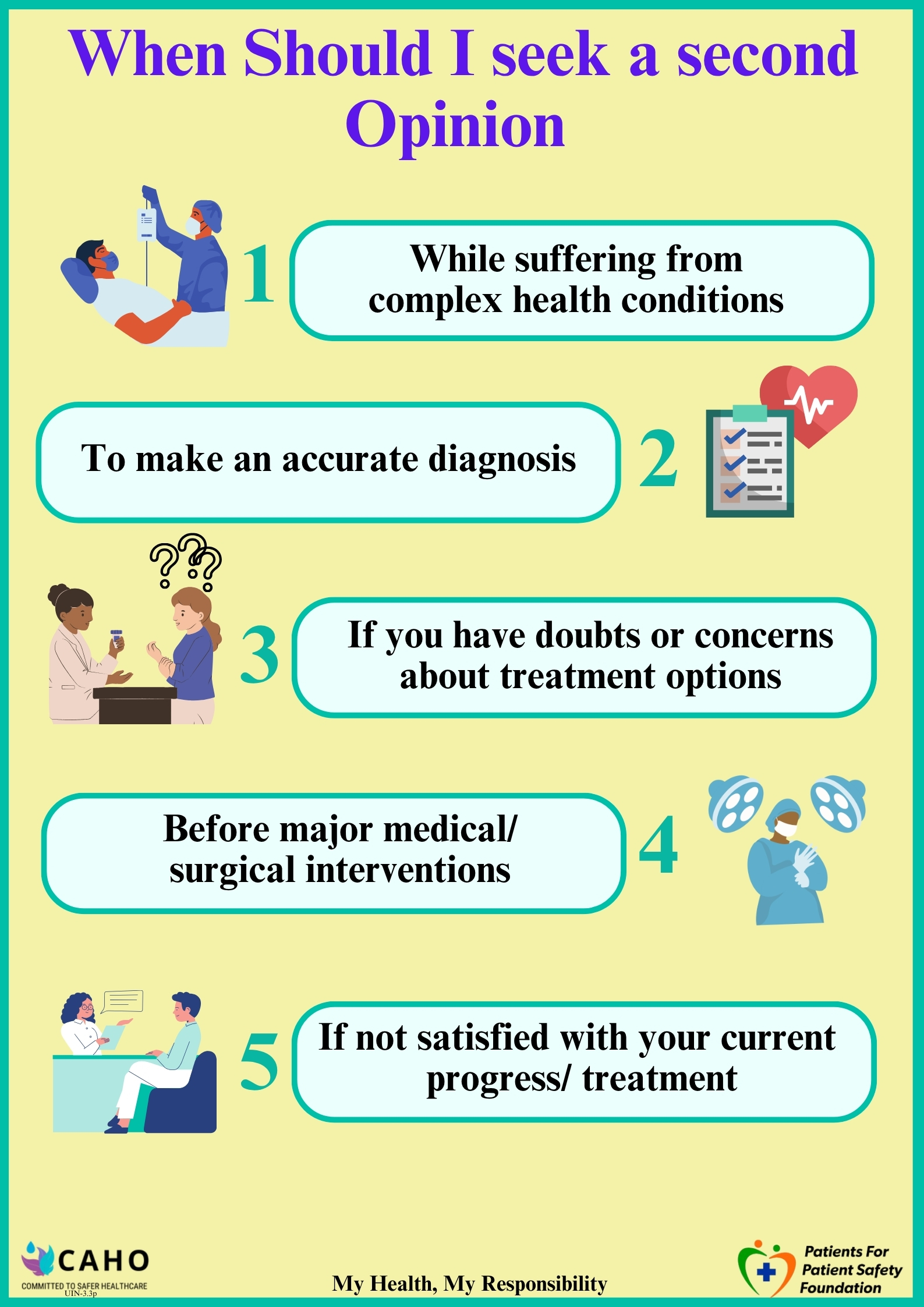
Tackling unknown health problems or facing a new diagnosis can be frightening and stressful. Reassuring yourself with additional knowledge and insights helps to gain control of your health decisions. A second opinion from another specialist or healthcare provider gives alternatives or confirms the diagnosis, resulting in an informed decision. This is your right and you should not hesitate or feel it could upset your current doctor.

1. While suffering complex health conditions, You may require a review by a specialist in that area to confirm your condition and the treatment options available.
2. To make an accurate diagnosis: At times you can get similar symptoms for different diseases and a judgement needs to be made. Take a second opinion if the diagnostic test has associated risks.
3. For major medical procedures: It can help you understand the risks, benefits of the procedure, and alternate treatment plans if any.
4. Lack of progress with current treatment plan: If your condition is not improving, review with another doctor who may have a different perspective and may suggest alternative treatments or medications that could be more effective.
5. If you are uncertain: Get reassurance from another doctor. It is important you have faith in your treatment and are committed to follow it through. A second opinion will help improve the trust level.
6. How to ask for a second opinion: Click here to clarify all your questions and doubts while taking a second opinion.
It is absolutely fine to tell your current doctor that you are taking a second opinion. In many cases, your own doctor may initiate this. It is important that you are fully convinced and reassured that the diagnosis and treatment are the most appropriate. It will reduce your stress and improve outcomes.
